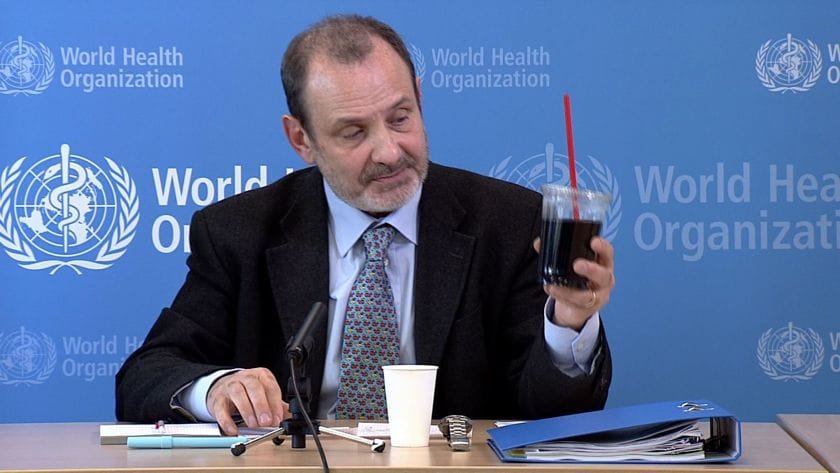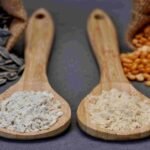For the first time, a semi-independent World Health Organisation committee did Aspartame hazard and risk assessment and ruled that aspartame should be classified as “possibly carcinogenic to humans.” However, acceptable daily intake remains the same.
The International Agency for Research on Cancer (IARC), the World Health Organisation (WHO), and the Food and Agriculture Organisation (FAO) Joint Expert Committee on Food Additives (JECFA) recently released assessments of the health effects of the non-sugar sweetener aspartame. IARC classified aspartame as probably carcinogenic to humans (IARC Group 2B), citing “limited evidence” for carcinogenicity in humans, while JECFA confirmed the tolerable daily consumption of 40 mg/kg body weight.
“The assessments of aspartame have indicated that, while safety is not a major concern at the doses which are commonly used, potential effects have been described that need to be investigated by more and better studies,” said Dr Francesco Branca, Director of the Department of Nutrition and Food Safety, WHO.

The two organisations conducted separate but complementary evaluations to investigate the potential carcinogenic risk and other health hazards connected with aspartame intake. The IARC analysed aspartame for the first time and JECFA for the third time.
After reviewing the available scientific literature, both evaluations noted limitations in the available evidence for cancer (and other health effects).
Based on limited evidence for cancer in humans (particularly hepatocellular carcinoma, a kind of liver cancer), the IARC categorised aspartame as potentially carcinogenic to humans (Group 2B). There was also modest evidence for cancer in experimental animals and limited data for probable cancer-causing pathways.
JECFA stated that the facts reviewed provided no compelling reason to modify the previously defined acceptable daily intake (ADI) for aspartame of 0-40 mg/kg body weight. As a result, the committee maintained that it is safe for a person to consume it within this daily limit.
For example, with a can of diet soft drink containing 200 or 300 mg of aspartame, an adult weighing 70kg would need to consume more than 9–14 cans per day to exceed the acceptable daily intake, assuming no other intake from other food sources.
The IARC’s hazard identifications are the first important step in understanding an agent’s carcinogenicity by defining its unique features and potential for harm, i.e., cancer. IARC classifications indicate the strength of scientific evidence that an agent can cause cancer in people but not the risk of acquiring cancer at a specific exposure level. The IARC hazard assessment takes into account all types of exposures (e.g., nutritional, occupational).
The Group 2B strength-of-evidence classification is the third highest of four levels, and it is often used when there is modest but not compelling evidence for cancer in people or convincing evidence for cancer in experimental animals, but not both.

“The findings of limited evidence of carcinogenicity in humans and animals, and of limited mechanistic evidence on how carcinogenicity may occur, underscore the need for more research to refine our understanding on whether consumption of aspartame poses a carcinogenic hazard,” said Dr Mary Schubauer-Berigan of the IARC Monographs programme.
JECFA’s risk assessments determine the probability of a specific type of harm, i.e., cancer, to occur under certain conditions and levels of exposure. It is not unusual for JECFA to factor IARC classifications into its deliberations.

“JECFA also considered the evidence on cancer risk, in animal and human studies, and concluded that the evidence of an association between aspartame consumption and cancer in humans is not convincing,” said Dr Moez Sanaa, WHO’s Head of the Standards and Scientific Advice on Food and Nutrition Unit. “We need better studies with longer follow-up and repeated dietary questionnaires in existing cohorts. We need randomized controlled trials, including studies of mechanistic pathways relevant to insulin regulation, metabolic syndrome and diabetes, particularly as related to carcinogenicity.”
The IARC and JECFA evaluations of the impact of aspartame were based on scientific data collected from various sources, including peer-reviewed papers, governmental reports, and studies conducted for regulatory purposes. Independent experts have reviewed the studies, and both committees have taken steps to ensure the independence and reliability of their evaluations.
IARC and WHO will continue to monitor new evidence and encourage independent research groups to develop further studies on the potential association between aspartame exposure and consumer health effects.
Source: www.who.int
















